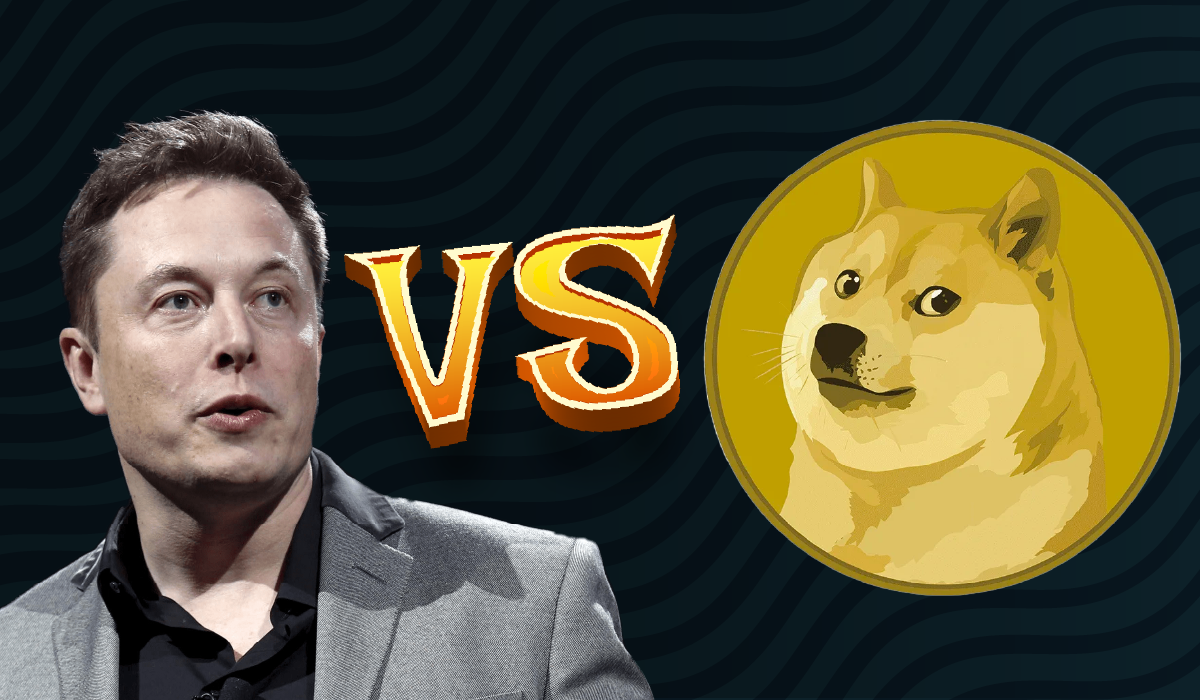Dogecoin is a cryptocurrency that was initially created as a joke by two software engineers, Billy Markus of IBM and Jackson Palmer of Adobe, in 2013 by combining two cultural phenomena of the time, the “doge” meme and Bitcoin. Dogecoin was an instant hit as soon as it was released, as over a million unique visitors opened the crypto’s website within its first month. Dogecoin became famous for its imagery of a Shiba Inu dog, followed by grammatically erroneous one-liners used to express jokes about any topic, in an era when memes and vines were starting to become all the rage on social media platforms, especially on Reddit, thanks to which the currency grew to a market value of $8 million in a short span of time.
Entrepreneur Elon Musk became a vocal advocate for dogecoin around 2018/19, when the Paypal co-founder and Tesla CEO announced that Doge was his favorite cryptocurrency. Since then, the bond between the two has grown to be somewhat intrinsic, as Musk has often tweeted or spoken about Dogecoin in glaring fashion, sometimes causing the crypto’s price to wildly fluctuate.
Musk has sent an array of compliments and endorsements the way of Dogecoin over the past few years, mostly via social media posts or interviews, always expressing his aptitude towards the memecoin in frank terms. Most recently in May 2022, Musk tweeted that DOGE would have immense potential as a fiat currency, while also remarking in an interview with TIME magazine that Dogecoin is more adaptable to financial transactions than bitcoin “because the cost per transaction is lower and the amount of transactions per second is higher.” He is not completely wrong, and adding to his thesis is the fact that doge was derived from the open source project Litecoin, and, unlike bitcoin, does not have a limit to the numbers of coins that can be produced in the system.
However, Dogecoin has been in a relatively steady decline for months, but has also crossed the threshold of a $9 billion market cap in October, which is certainly not an easy feat for any cryptocurrency. Lately, it would almost seem that the only times Dogecoin has attempted a sort of price comeback are linked to Elon Musk’s actions. For example, in addition to passively manipulating the currency’s performance via vocal and social endorsements, Dogecoin’s price spiked by 20% when it was disclosed that Musk had bought 9.2% of Twitter’s shares in April, and had a very similar jump when the SpaceX CEO outright acquired the social media titan in late October.
These developments pose an interesting question: where would Dogecoin be without Musk’s interventions over the years? And how would the crypto market itself look had the world’s richest man not taken an interest in it? Dogecoin had created its own subculture in the early around 2013, when it became popular on Reddit and other channels for the practice of “tipping”, or thanking someone on the web for their “good deeds”. But, ever since Musk took an interest in it, it has been solely synonymous with him ever since, and has led a myriad of his fans to invest in the currency, thereby helping it grow but making it lose its unique cultural identity on the web.
Following the recent collapse of major crypto exchange FTX and the subsequent drop in price of every crypto, Musk stated that bitcoin “will make it”, but that it could be in for a “long winter”, while he also asserted that Dogecoin would unquestionably return to be successful. Musk had also invested $1.5 billion in bitcoin in 2021, but his recent words undoubtedly lead to believe that his trust in Bitcoin has somewhat lessened compared to that in Dogecoin. It would be unsurprising if his statements, much like his past tweets, help Dogecoin bounce back somewhat in the future and instead keep bitcoin in price limbo: but is that fair to other investors and people who have taken an interest in cryptocurrencies? Should one man be able to artificially coerce an asset’s price just because he has the means and the following to do so?
In today’s interconnected and partisan world that revolves around social media, it is predictable that Musk’s die-hard fans (and there are quite a few now, especially following Musk’s ill-timed endorsement of the Republican pre-Midterms) will take anything he says as a commandment. It is therefore productive for Doge and its investors to remain under Musk’s wing, but that much power in a single man can be a fluctuating prospect, especially if he eventually decides to turn his back on the currency as he seems to have done on BTC, which has the capacity to weather out the currency storm, but would Doge be able to do the same as well?. What is clear is that this is a development that we will surely keep our eyes fixed on.




